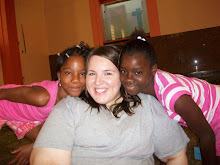It's been a long week:
Sunday I had a terrible stomach virus. Monday I found out the class I was registered for was cancelled months ago, but the dept never took it off banner. Tuesday I found out my only option to graduate was to take a weekend class with a somewhat crazy schedule/syllabus. Wednesday I learned the other class I registered for had a special course requirement that means that instead of my class being at the time it was scheudled from 1-4, it will be 1-2:45, 4:30-5:30. The assignment is actually very good, however, the random hour and 45 minute break in my day is not cute at all. Thursday I lost my voice just in time for the lecture I was giving to the Marriage and Family students. Nothing like a 3 hour statistics crash course from a girl who sounds like a pathetic mouse. Friday I spent 5 hours learning about new changes in our department's clinic, the new requirements I'll have to meet, and had a miniture freak out with my cohort about practicum hours/scheduling/the future.
It has been a week of sickness, bad attitudes and belligerence, and anxiety about the future (and the present for that matter). I hate having a bad attitude about things, and all week I have been struggling to find the good in all the changes going on in our dept and my course scheduling difficulties. The thing is, I feel so justified in my bad mood. My scheduling difficulties are due to other people's mistakes, the changes in the clinic were due to other people's decisions, my sickness was due to circumstance... in other words I felt like I hadn't done anything to deserve all this hardship the week has thrown my way.
I am so selfish.
Most of the time the church has been so focused on what we deem the bigger temptations when it is often the smaller, less threatening ones that eventually become so devestating. We wrap our accountability around lust and addiction: alcohol, drugs, sexuality, and the like. But we aren't very vigilant when it comes to materialism and excess. Pride and resentment. Gossip jealousy. Monitoring the words that come out of our mouths. Selfishness and greed. Negativism and divisiveness. In fact, we do a pretty good job of ignoring that these all fester inside of us. Why? Because in modern society, they’re okay.
Like I said before, I felt justified in my bad attitude this week. I felt justified when I was rude to the person who made the mistake on banner. I felt justified in my excessive worry. I felt justified when I complained profusely. I felt justified when I rolled my eyes at our clinic director. This feeling of justification is, of course, rubbish.
My selfishness reared its ugly head this week, and to be honest I'm really embarassed. I hate that I let myself carry on for so long, and even on Wednesday night at church when I finally admitted to myself that I needed to let my bad attitude go and commit my anxious thoughts to God- I still carried on a bit Thursday and Friday. Thankfully, I have some wonderful Godly friends who are really good at reminding me of whats really important.
At any rate, this week got me thinking about sin, and how we justify it. We all have weaknesses that, unchecked, eventually become sin that can destroy our lives. But this dormant sin is not some fungus that will hatch no matter how deep our cleaning. It is a seedling that grows when we water and feed it, and we give sin sustenance when we excuse and bury the little stuff in our lives. Of course, no sin is little—but culture (and certainly the Church) have minimized some while maximizing others, never acknowledging that the minimized, socially acceptable sins eventually do eternal damage.
So then the question arrives: How do we know what sin is? Any one can find a scriptural thesis either supporting or condemning their own habits if they have the time. So how do we know for certain? We know sin by what sin does. Sin separates and destroys.
Sin separates us from God and from one another. Sin separates us from peace. Sin separates us from joy. Sin destroys family, relationships, and community. Sin builds walls of hatred between cultures, denominations, political parties, races and genders. Sin convinces us that we are right and everyone else is wrong and that this distinction is more important than love. Sin numbs a heart until it no longer loves others —and eventually no longer loves God.
I find myself praying that we would start rationalizing less and loving God more.
"If we claim that we're free of sin, we're only fooling ourselves. A claim like that is errant nonsense. On the other hand, if we admit our sins—make a clean breast of them—he won't let us down; he'll be true to himself. He'll forgive our sins and purge us of all wrongdoing. If we claim that we've never sinned, we out-and-out contradict God—make a liar out of him. A claim like that only shows off our ignorance of God." 1 John 1:8-10
Saturday, January 16, 2010
Subscribe to:
Post Comments (Atom)


1 comment:
this was really great. I too need to rationalize less and love God more. We were just talking last night about how the hardest sins to give up are because we're just so darn selfish and self-centered. Love you!
Post a Comment